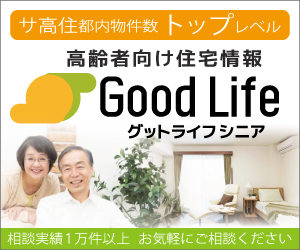「グッドバイ」「元気でね」と、ハウスの住民がここから旅発つ仲間に声をかける。握手をする者、抱き合う者、それぞれに名残を惜しむ。昨夜の送別会を思い出したのだろうか、涙ぐむ者もいる。その中に40歳半ばの日本人男性の姿があった。
一人暮らしの生活に“寂しさ”“不安さ”“つまらなさ”を感じていた彼は、友達から紹介され、国や文化を超えいろいろな人達が住むという「ゲストハウス」に、新たな人との出会いやふれあいを求め、1ケ月前からここの住民となった。初めのころは年齢的なこともあり友達もなく、なかなかハウスに馴染めないでいた彼だが、今、若い子達と一緒にここから旅発つ仲間に、「また戻っておいで、いっしょに住もうよ」と大声で叫んでいる。

ゲストハウスを越す者からは「寂しくなったら、また戻ってきてもいいですか」。一方、入居を希望する者からは「覚えていますか。1年前に住んでいた○○です。また住みたいのですけど部屋は空いていますか」などといった電話が最近、管理人のところに多く入る。
日本人にも多く利用され始めた「ゲストハウス」、人はそこに何を求め何を期待してやって来るのか。一見、このような形態の住居には大学生などが多いように思われがちだが、実は住人の大半は20代半~30代半の社会人である。そして男女比はほぼ半々だ。
一人暮らし生活の長い、ある日本人女性は会社からだれも居ない真っ暗なアパートに帰るのがとにかく嫌だったと言う。今はハウスに帰ると、かならず「お帰りなさい」とだれかが声をかけてくれる。玄関やリビングでは皆の話し声や笑い声が聞こえ、“ほっと”すると言う。また、今までの1人さびしい夕食も、今は皆と一緒で楽しい。家族や会社の同僚などには話せない事でも、今は話せる仲間ができたからだ。
ある者はこの「ゲストハウス」に普通のアパートにはない“人との出会い”や“めぐり合い”といった“非日常さ”を感じてやって来る。またある者は、一緒に暮らすメリットを感じ、さらにある者は、共同生活で繰り広げられる“長屋の八っさん熊さん”のような“貸したり借りたり生活”を楽しむ。
住民の多くが「このハウスの人はみんな友達で、家族みたいだよ。だからここはハウスではなくホームなのだ」と話す。
Column 6: A Community Built by Residents – From House to Home
“Goodbye” and “Take care” – the residents of the house bid farewell to their fellow travelers embarking on their journeys. Some shake hands, some hug, each one saying goodbye in their own way. Perhaps they are reminded of the farewell party from last night, as some of them shed tears. Among them, there was a middle-aged Japanese man in his forties.
Feeling “loneliness,” “anxiety,” and “tediousness” in his life living alone, he was introduced by a friend to a “guest house,” where people from various countries and cultures live together, seeking new encounters and interactions. He became one of the residents a month ago. At first, due to his age, he didn’t have many friends, and it took him a while to fit in, but now he shouts loudly with his young friends to the fellow travelers leaving the house, “Come back again and live with us!”
Those passing by the guest house often say, “If you feel lonely, you can come back anytime,” while those hoping to move in ask, “Do you remember me? I lived here a year ago as ○○. Are there any rooms available?”
What do people seek and expect when they come to a “guest house,” which has been increasingly used by Japanese people? At first glance, this type of dwelling is often thought to be used by university students, but in fact, most of the residents are in their mid-20s to mid-30s, working adults, with a nearly equal gender ratio.
One Japanese woman, who had been living alone for a long time, says she hated coming back to a completely dark apartment with no one there after work. Now, when she returns to the guest house, someone always greets her with “Welcome back.” She hears everyone’s voices and laughter in the entrance and living room, and feels relieved. Moreover, what used to be a lonely dinner is now an enjoyable meal shared with everyone. She has found friends she can talk to about things she couldn’t discuss with her family or colleagues.
Some people come to this “guest house” to experience the “unusualness” of meeting new people and encounters that cannot be found in a regular apartment. Others feel the benefits of living together, and still others enjoy the “lending and borrowing” lifestyle, reminiscent of a Japanese TV show “Yattsuke Shigoto” featuring an old-style tenement. Many residents say, “Everyone in this house is like family and friends. That’s why this place is not a house but a home.”













